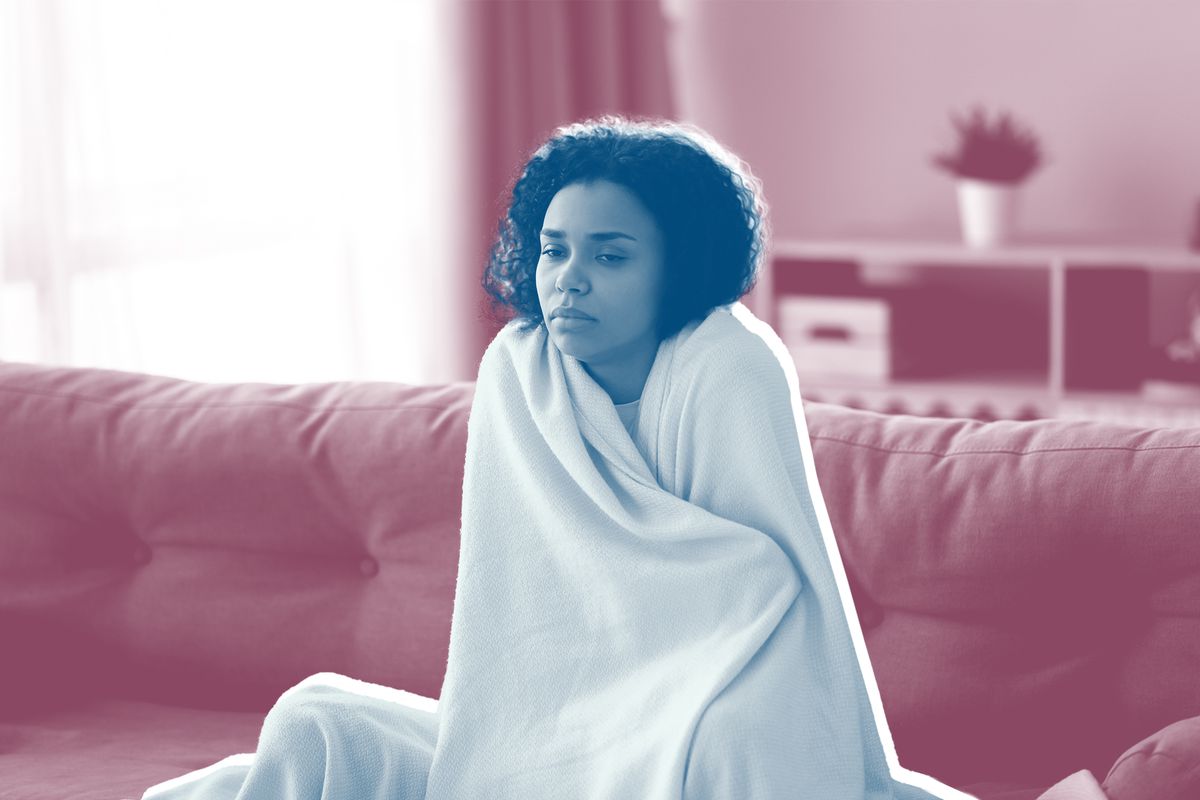Where to buy cheap soloxine coupons no prescription
It's totally normal to get chilly when temperatures drop— but feeling a little cold is different from having the chills, which tends to happen when you're sick.
Yes, that means chills can be a sign of COVID-19, according to the Centers for Disease Control and Prevention (CDC), but chills aren't an immediate indicator of having the virus. "Chills are not specific to COVID-19," infectious disease expert John A. Sellick, DO, professor of medicine at the State University of New York at Buffalo, tells Health. "They are classically seen in many types of infections, especially influenza, bacterial pneumonia, and other viral infections."
So, what should you think (and more importantly, do) if you suddenly come down with chills? Here's what doctors have to say.
What are are chills, and how common are they with COVID-19?
Chills—also referred to as rigors—are episodes of shivering paired with paleness and feeling cold, according to the US National Library of Medicine's MedlinePlus resource, often as a result of a fever or the beginning of one.
When you have a fever (commonly caused by an infection like the flu or COVID-19), it stimulates your body to release inflammatory chemicals and other substances to try to rid yourself of the illness—and that can raise your temperature, Dr. Giordano says. "A raised temperature may help viruses and bacteria get cleared by your immune system faster," he explains. "In response, you feel cold, your muscles shake to generate heat to warm your body, and you reach for a blanket. The chills get better when you reach the new higher temperature, and now you have a fever."
Because chills are usually linked with a fever, which is one of the most common symptoms of COVID-19, Thomas Giordano, MD, MPH, professor and section chief of infectious diseases at Baylor College of Medicine, tells Health, that means they're also quite common with a coronavirus infection. One study of 164 symptomatic coronavirus patients released by the CDC in July found that 63% reported having chills. And a meta-analysis of 24,410 adults with COVID-19 published in PLOS One in June found that 2,834 reported having rigors, i.e. severe chills that cause whole-body shaking.
How can you know if your chills are a symptom of COVID-19?
It's tough to say for sure without being tested for COVID-19. "Fever and chills are signs of many infections as well as other things. Some allergic reactions can give you a fever, for example," Dr. Giordano says.
Also, it's unlikely you would ~just~ get chills and not have any other symptoms. "Chills usually do not occur by themselves but are part of a constellation with fever, shivering, muscle aches, headache, and other systemic symptoms," Dr. Sellick says. So, if you have chills a fever, cough, and muscle aches, "COVID-19 certainly would be a consideration, as would influenza at this time of year," Dr. Sellick says. Basically, you should call your doctor about next steps.
Still, it's going to be difficult for even your doctor to know what's going on for sure. "The only way to know if you have COVID is to get a test for COVID," Dr. Giordano says.
How do you treat chills from COVID-19?
"Chills are your body's way of trying to warm itself," Dr. Giordano says—and it's not necessarily a symptom you want to (or can) treat on its own. With that in mind, doctors recommend that you do the following to try to feel more comfortable and to help the process along:
- Put on more layers
- Have a hot drink
- Wrap yourself in a blanket
- Stay hydrated
It's also a good idea to take fever-reducing medications (if you do, in fact, have a fever). This can "reduce the inflammation and turn the thermostat in your body back down, so they reduce the fever and the need for chills," Dr. Giordano says. Just know that you'll probably sweat once the medication kicks in because your body has to release extra heat to get your core temperature down.
Keep this in mind, though, per Dr. Giordano: "Fever reducing medications don't cure the infection, they just mask the symptoms. After they wear off, if you are still sick, you could get another round of chills as the fever returns."
The information in this story is accurate as of press time. However, as the situation surrounding COVID-19 continues to evolve, it's possible that some data have changed since publication. While Health is trying to keep our stories as up-to-date as possible, we also encourage readers to stay informed on news and recommendations for their own communities by using the CDC, WHO, and their local public health department as resources.
Source: Read Full Article
